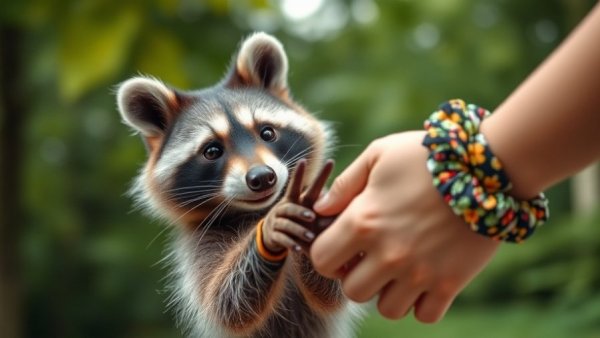
Raccoons: The Surprising Option for Household Pets
In recent years, an intriguing trend has emerged in the realm of pet ownership—raccoons are gaining popularity among households as potential pets. This phenomenon is taking root especially in urban areas of America, raising questions about whether these wild animals might adapt to life alongside humans. Researchers from the University of Arkansas highlight the evolutionary changes raccoons are experiencing, enhancing their physical appeal just as their interactions with humans increase.
What's Behind the Raccoon Craze?
The allure of raccoons as pets appears to stem from a growing trend known as domestication syndrome. According to studies, raccoons residing in urban settings are developing softer facial features and reduced fear of humans, presenting a more inviting demeanor. As described in a recent article from Science American, these adaptations parallel changes previously observed in domesticated dogs and cats, suggesting that raccoons could be the next frontier in pet ownership.
The Risks and Responsibility of Pet Ownership
Despite the rising curiosity about raccoons as household companions, it is crucial to acknowledge the risks involved. Not only are raccoons wild animals with specialized needs, but they can also exhibit aggressive behavior and tend to be destructive. Furthermore, many regions uphold strict regulations regarding the ownership of raccoons, due to health risks associated with rabies and other zoonotic diseases, as stated by the CDC.
Are Raccoons Right for You?
While raccoons may be cute and increasingly sociable, potential pet owners must consider practical implications. Unlike traditional pets, raccoons thrive in environments that mimic their natural habitats, which are often unattainable in typical households. Owning a pet should not be just about how adorable they are; it is essential to weigh the responsibilities and challenges associated with their care.
Learning from Nature: The Future of Pet Ownership
As human lifestyles evolve, the concept of pet ownership is also changing. With benefits of companionship and joy that pets bring, it is no wonder that people seek diverse animals. However, understanding the blend of wildlife and domestication is imperative to ensure that we are fostering a nurturing and ethical relationship. By examining pets’ traits that become increasingly domesticated, we can extract lessons to better manage and appreciate traditional pets and their behavior.
Conclusion: Stick with Tradition for Pet Ownership
Before jumping onto the raccoon trend, consider the importance of choosing pets that have been domesticated for generations. Understand that traditional pets have a history that caters to human companionship. If your heart is set on unique companions, focus on those animals that offer a rich history of domestic interaction. They will not only enrich your life but also help maintain the harmony between humans and wildlife.
Want to know more about this evolving topic and how to choose the right pet for your home environment? Be sure to stay informed and connect with local health and wellness communities for insightful discussions!
 Add Row
Add Row  Add
Add 




Write A Comment